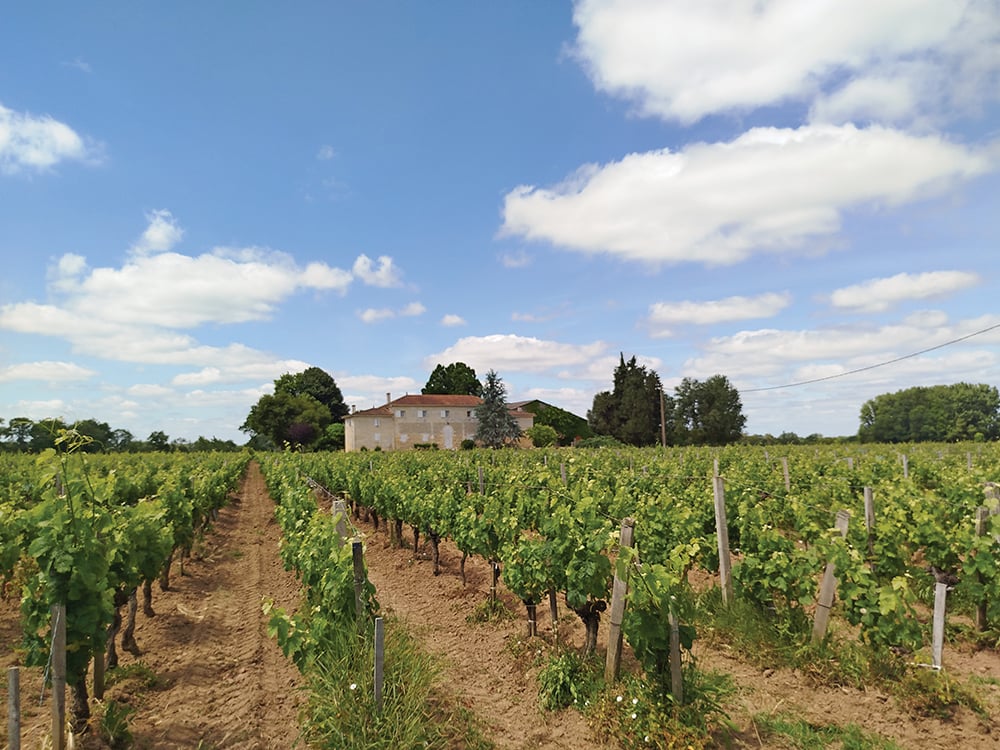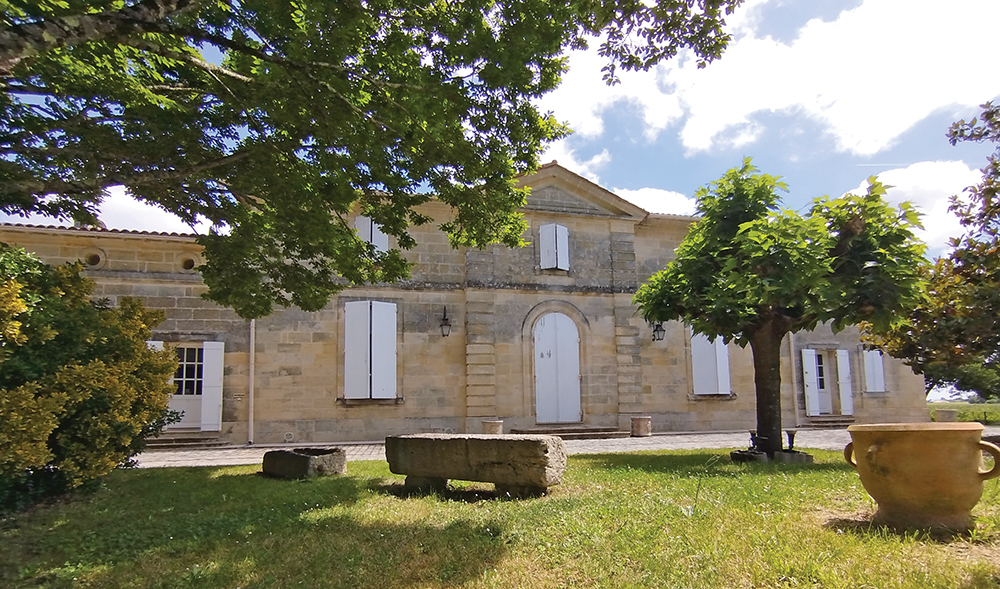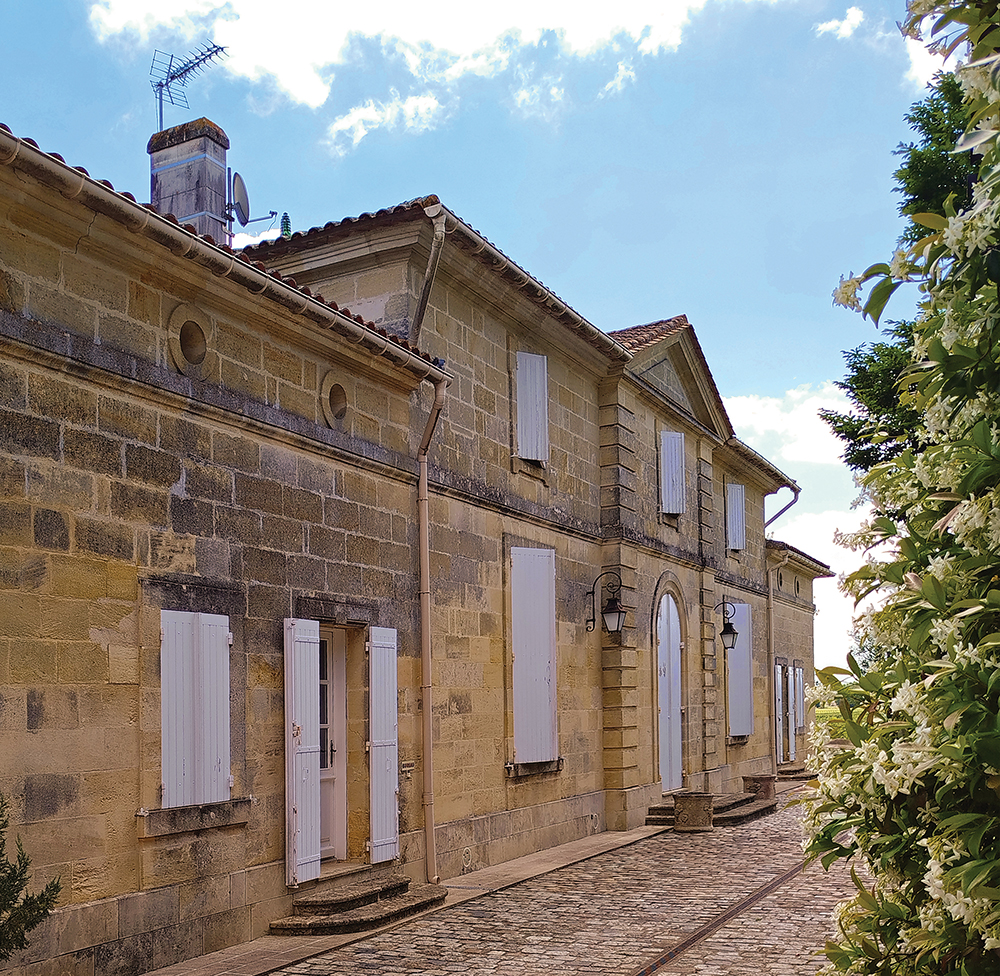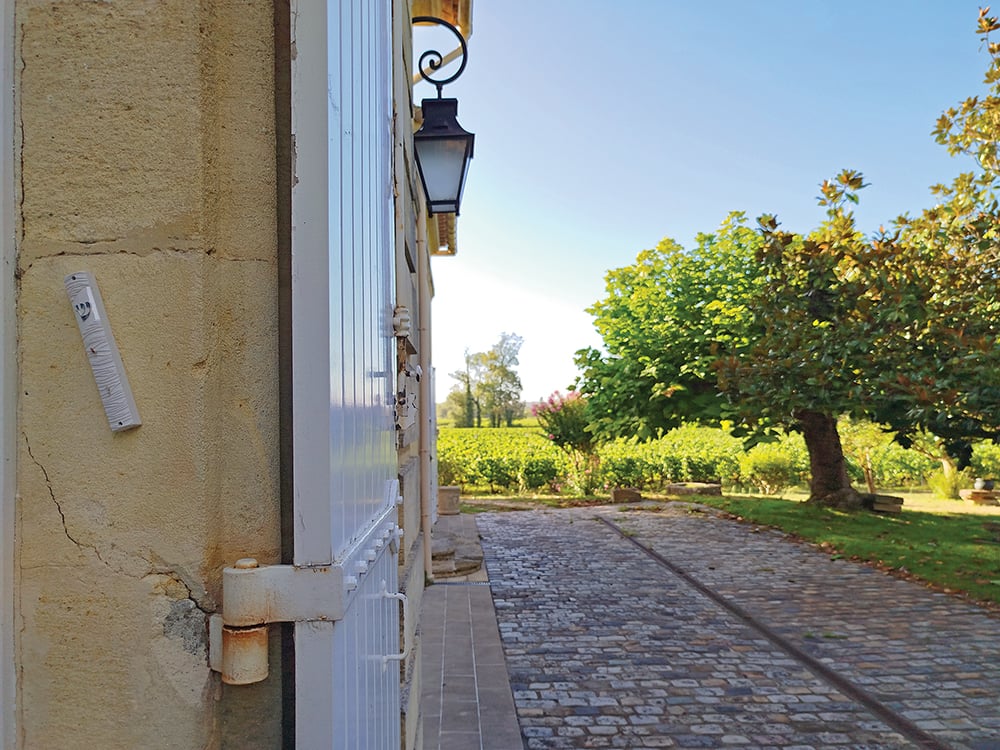Château Jupille Carillon’s Reinvention

For decades, Château Jupille Carillon has been one of Saint-Émilion’s quiet performers, producing supple, merlot-driven reds from its clay-limestone soils along the Dordogne plain. This year, the château is making history. Under new Orthodox Jewish ownership, it has become a fully kosher winery, mezuzot on the doorposts and Sabbath-observant staff in the cellar. The first kosher vintage, 2024, is already in barrel, with release timed for Passover and broader availability expected by the next High Holidays.
This isn’t just a special kosher “run” or a one-off bottling arranged by a négociant, as is usually the case for kosher Bordeaux wine. It is the full conversion of a Saint-Émilion estate—vineyard, winery and brand—into a kosher-certified operation. The story of how this happened touches on the state of French wine, the economics of kosher production, and the desire to educate and serve a Jewish wine-drinking public that is increasingly interested in fine Bordeaux wines.
The backdrop is France’s wine crisis. Consumption is falling, especially among the young, who increasingly favor beer or spirits. Major retailers squeeze growers on price, buying large volumes but leaving small family estates with slim margins. Jupille Carillon, long run by the Visage family, reached a turning point when its matriarch approached retirement and no children were interested in continuing the work.

At the same time, French Jewish investors—the PRYMAC Group—were searching for an opportunity in wine. Through its newly formed subsidiary PRYMAC Wine, the group acquired the estate in September 2024. PRYMAC is a French holding company run by Orthodox Jews with a wide range of investments, including ventures in the kosher food sector. Its aim is to present a Bordeaux estate that can both serve and educate the kosher market, while honoring the terroir and identity that made the wine successful in the first place.
The new general manager and winemaker of Jupille Carillon, Rabbi Mendel Bitton, is an unlikely figure by Bordeaux standards. He is an ordained rabbi who received semicha in 2004 and for the past two decades has worked in kosher supervision, particularly in wine. Since kosher wine certification usually requires that only Sabbath-observant Jews can perform the physical acts of winemaking once grapes reach the cellar, the mashgichim are often hands-on for the actual winemaking. A rabbi who takes responsibility for a winery quickly becomes, in practice, a winemaker.
“I have been working with kosher wine for 20 years,” Rabbi Bitton explained. “When you work all day with oenologists and vineyard managers, you learn the work. This is how I became a winemaker.”
For Jupille Carillon, Rabbi Bitton is making final decisions of when to harvest, how to ferment, and what to blend, but he is not working alone. The estate retained the longtime oenologist who knows its terroir intimately, and the vineyard manager who tends the vines, among other key staff. The terroir is the same, the vineyards the same, the grape mix still largely merlot with cabernet franc. “We wanted to keep the same nature of the wine,” the rabbi-winemaker said, “but sometimes you can do a small thing better if you invest.”
One such investment is in new sorting technology. Grapes will be immersed in a sugar-water solution calibrated to a precise density. Healthy fruit sinks to the bottom, while underripe berries, insects and unwanted debris float and are skimmed away. It is costly equipment, but it ensures cleaner fermentation and more precise flavors. It also helps answer kosher concerns about insects, which, while technically negligible in number in halachic terms, are best avoided altogether. The result should be wines that are recognizably Jupille Carillon—supple, ruby-colored, with polished tannins—but more consistent and focused.
When a kosher “run” is arranged at a non-kosher estate, there is always the complication of kashering equipment, separating production, and relying on additional Jewish staff for much of the process, in addition to the winery team. By contrast, Jupille Carillon was fully kashered at the moment of purchase, and from then on has been operated only by Sabbath-observant staff in the cellar. Tanks, barrels and lines never need reconversion. “We had to make the winery kosher only once,” Rabbi Bitton explained. “From then on, everything stays kosher.”
That permanence opens another door: meeting the strictest expectations of some ultra-Orthodox consumers who want assurance that non-Jews have not handled or even seen the wine after harvest. “This year, we are going to make one production for this kind of very Orthodox requirement,” he said. What would be awkward or impossible in a shared facility is manageable in a fully kosher estate.

The 2024 harvest marked the first kosher vintage. Grapes are now aging in barrel; bottling is planned in time for Passover 2026. U.S. and Israel availability should follow by the next Rosh Hashanah season. Distribution, however, is still being worked out. The plan in France is to sell directly to stores and to consumers online, bypassing intermediaries to keep prices accessible. In the U.S., complex state regulations and tariffs complicate import and distribution. In order to keep prices down, the estate is exploring ways to reach consumers directly where possible.
One goal of the business is to ensure that kosher wine drinkers should not have to pay a luxury premium merely to taste good Bordeaux. In France, everyday wine drinkers can explore quality bottles at modest prices. The new owners want the same access for Jewish consumers worldwide, and are hoping that by eliminating the need to kasher a winery for each production and utilize additional teams to make the wine and coordinate the effort, the price of quality kosher Bordeaux will be more accessible.
Perhaps the most exciting part of the project is tourism. Kosher visitors to Bordeaux have long faced challenges. They can tour wineries that have made kosher wines, but not taste the wine, since the special kosher productions are usually immediately shipped to distributors. Jupille Carillon intends to change that with plenty of kosher wine on hand. Mezuzot are already installed on the château. Plans are underway for quick kosher meals—simple brunches or snacks for visitors—and, more ambitiously, a seasonal restaurant serving full kosher menus in summer or by pre-booking. Renovation of guest rooms in the château’s old house will allow overnight stays.
The idea is to replicate the non-kosher Bordeaux experience—a vineyard walk, a cellar tour, a seated tasting and a meal—without compromise. “We wanted to make the same model as non-Jewish wine tourism, but in kosher,” the rabbi-winemaker said. “So people can have the full experience.”
When I toured Bordeaux last year with Wine with Zev, coordinator Zev Steinberg went to great lengths to purchase and bring along kosher wines made by the châteaus we visited, and coordinated a kosher barbecue at Domaine Roses Camille, a domaine that is currently producing only kosher wines, albeit at a premium price point. Arranging the kosher tour is a complicated process. Steinberg now includes Jupille Carillon on his tour and declared the barrel tasting his group did there one of the highlights of the recent expedition.
I hope Jupille Carillon will link up with the very few other fully kosher wineries in Europe—such as Elvi in Spain and Terra Di Seta and Cantina Giuliano in Italy—to create itineraries for Jewish travelers. Just as Bordeaux promotes regional “routes” of non-kosher estates, a kosher circuit could one day span Italy, Spain and France.
The new owners see education as part of their mission. In France, wine drinkers grow up learning about millésimes—the differences between vintages—and terroirs. Kosher consumers often lack that background. “In the kosher world, people don’t yet know about this,” Rabbi Bitton said. “They are more interested in wine than before, but not yet educated.”
How to change that? First, by keeping prices reasonable so exploration is possible. Second, by using the media many people, particularly the young, increasingly consume: TikTok, YouTube, WhatsApp. And third, by offering kosher wine tourism that educates while it entertains. “Wine is a big part of Jewish culture, and also of French culture,” Rabbi Bitton said. “It is interesting to make the bridge between the two.”

Climate change looms over Bordeaux, with heat and drought making irrigation increasingly tempting. But irrigation remains heavily restricted under the Saint-Émilion AOC (appellation d’origine contrôlée). Some big names have left the appellation to free themselves to irrigate, gambling that their brand alone is strong enough to sell wine without the AOC name.
Jupille Carillon, by contrast, intends to stay. “When you are starting with a new business, it’s better to have the AOC,” Rabbi Bitton said. “It gives you roots and recognition.” Later, perhaps, choices can be made from a position of strength. For now, the label “Saint-Émilion” remains important in educating kosher consumers about what they are buying.
Rabbi Bitton lives in Lyon, a short flight from Bordeaux. During harvest he spends a month on site, returning home only for Shabbat; the rest of the year he visits for several days every two weeks. Château Jupille Carillon’s very name evokes music: a carillon is a set of bells ringing together. For decades, the estate’s wines were a quiet note in Saint-Émilion’s chorus. Now they ring with a new timbre. The first kosher vintage is still resting in barrel, but already the project is resonating—across Bordeaux, and across the kosher wine world with those eager for authentic experiences that don’t compromise on tradition.
Jules Polonetsky is a WSET 3-certified wine expert and maintains a wine education site at kosher-wine.org, when not at his day job as CEO of a global tech policy think tank. He is a former consumer affairs commissioner of NYC.


Dining and Cooking